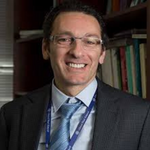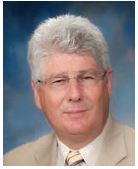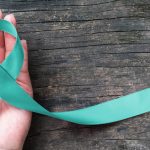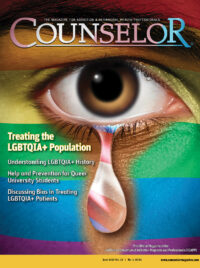Share
During the historic pandemic of COVID-19, the world can surely look like a sinister place. This pandemic has contributed to an increase in death rates, mental health and substance use problems, domestic violence, financial stress, and housing instability (SAMHSA, 2020). The news cycle offers a constant barrage of stories of heartache, suffering, and death, and we are obsessively preoccupied with “shelter-in-place orders,” “stay-at-home orders,” “washing hands,” “social distancing,” “waiting for the peak or the surge,” and “flattening the curve.” It is easy to conclude that our future is bleak, if it is to exist at all, yet even a tiny point of light vanishes darkness.
What do we need to successfully defeat COVID-19? A 100 percent vaccination rate? A cure? Sure, those things would help eventually, but how can we respond to the deep sense of despair and the collective trauma human beings are experiencing? Exhibiting lovingkindness within our community can lessen the darkness, provide hope, and enable us to help and support each other so no one goes through this alone.
Many of us believe we have no choice over how we see the world, which is not true! The as-if assumptions we have describe the underlying patterns that determine ways in which we view the world. Most of us live as if life is predictable and we make plans as if our lives will continue indefinitely. It seems that we take these “as-ifs” for granted, or they may be so deeply ingrained that they are not even consciously doubted.
Just imagine what a fulfilling experience it would be if we live as if this moment might be our last. We bet that few can tolerate this sense of immediacy! The as-if assumptions we have shape our present outlook, the course of our future, and even our past by remembering these presumptions. They affect how we perceive ourselves and can have a major impact on those around us, but our as-if assumptions can also be challenged and changed. What we believe is important, and what we do reflects our beliefs and can even potentially change them.
The process of change starts with living as if new beliefs shape our reality. Wagar states that “The ultimate function of prophecy is not to tell the future, but to make it” (1963, p. 66). How we see our future is a matter of choice and vision; it is not just an extension of the past or a projection of the present. It is as if looking ahead into a future of hope and participating in the expectation forms our reality. It is important that all of us participate in the creation of the future. Although it might seem like our actions are small and our contributions are minimal, we can each play our part.
Small Acts Make a Difference
Every day we can find small cumulative acts that have a profound influence. For instance, recycling trash, financial generosity, conserving energy, volunteering, or practicing forgiveness can all have a deep and long-lasting impact. Many people are struggling financially, but due to the donations of food in our communities they are able to avoid hunger. One small way to help is by generously giving an increased tip to those who prepare our take-out orders and deliver food or groceries to us.
Forgiveness
Letting go of negative feelings, forgiving others who we believe have hurt us, or showing acceptance and compassion can help reshape our future and that of others. It is invaluable to have someone be a role model and “go first” to help foster action and absolution in others. A willful faith, living as if what one believes and does makes a difference, becomes a catalyst for change.
We see this consistently in individuals and family members recovering from substance use disorders (SUDs). Many in recovery offer hope and share support in many ways through sharing their own and listening to others’ experiences, expressing encouragement, and mentoring others in using the tools of a recovery program.
Lovingkindess Defined
What is lovingkindness? The concept has been defined as an English translation of chesed, from the Hebrew Bible and meaning “steadfast love” (Snaith, 1951/2012) and another translation of metta, from Buddhism and meaning as “benevolence” and “active interests in others” (Rhys Davids & Stede, 1921–5). Other closely related terms are kharis and agape, from Greek and meaning “grace” and “love” (Liddell & Scott, 1843/2010). So, what we are referring to is a seemingly universal mélange of loving intention and kind action. The crux of lovingkindness is centered on acting for the well-being of others. It is a chosen and consistent practice through the ongoing journey of life; an unearned and unconditional action that brings out the best in us.
Each day we can put lovingkindness into action. First and foremost is being mindful and conscious of our own choices and actions. We have been repeatedly told about the importance of social distancing and how it saves lives, yet some are not participating. Social distancing is lovingkindness in action. To buy into social distancing requires empathy and a moral sense of responsibility for the community. Empathy is the action of understanding or capacity to understand and be aware of someone else’s feelings, thoughts. and experiences (Merriam-Webster, 2022). Empathy allows healthy young people to view the pandemic from the perspective of older, medically compromised citizens who face grave consequences if they become infected. It is through being empathic that we can understand and feel the anxiety and fear of those most at risk. Being empathic allows us to connect with the pain and struggle of health care practitioners who are tasked with fighting this pandemic on the front lines. Empathy opens our hearts to understand others’ pain and how best to soothe it. Empathic concern is one dimension of lovingkindness, which is about understanding and doing what is required for another’s well-being.
The Need for Community
Historically, humans have chosen community over “every man for themselves”—the collective benefit to each individual is greater when people work together toward a common goal and shared values. In a similar context, if our sense of community were to fall apart and individuals were to act only in their best interests, we will quickly find ourselves running short on vital supplies as stockpiling takes precedence over the greater good. Through responsibility and commitment to community we each make small sacrifices so fewer individuals need to make larger sacrifices. We have never relied on one another as much as we do now. We have a social, moral, and human responsibility to care for and protect ourselves, our friends, and our families.
The Prison of Privilege
Every day we see how COVID-19 is laying bare health, socioeconomic, and income inequalities. The more vulnerable socioeconomic groups of our community, in particularly people of color, are suffering from a greater risk of financial exposure, health problems, and death. Miller (2017) suggested that the “prison of privilege” is a major obstacle to lovingkindness. He described the four walls that create a prison of privilege—greed, anxiety, entitlement, and envy—and their antidotes define some aspects of lovingkindness (Miller, 2017).
Ambition is healthy until it crosses a line and becomes greed, the first wall of the prison. Being a giver is not limited to material resources, as we can be generous with our kindness and receptivity. Importance lies in the way we give, such as giving with respect, happiness, and joy. Gray, Ward, and Norton note that “The idea of paying it forward is this cascade of goodwill will run into utopia with everyone helping everyone” (2014). Giving back in recovery is the foundation of the fellowship. All of us benefit from the time, attention, and concern of others, no matter how small. Checking on a friend or neighbor to find out how they are doing and if they need anything can be as important as giving a material resource.
The second wall is anxiety, which is the fear of not having enough and being isolated from others. We are a consumption-fueled society that keeps looking for what it believes would make it better: more. This is also connected to envy and entitlement, the third and fourth walls, which are exacerbated by economic disparity. Simplicity, humility, and gratitude provide comfort and inner peace, helping each of us come to terms with enough. All of these are at the heart of lovingkindness.
Conclusion
The journey of lovingkindness is not an easy and simple one. Practicing it changes us. “For where your treasure is, there your heart will be also” (ESV Bible, 2008, Matt.6:21). What are our treasures and values? How do we choose to spend our treasures and live by our values? Let our benevolent beliefs and our collaborate actions define where our heart is!
References
- English Standard Version Bible (ESV Bible). (2008). Crossway. https://www.esv.org/
- Gray, K., Ward, A. F., & Norton, M. I. (2014). Paying it forward: Generalized reciprocity and the limits of generosity. Journal of Experimental Psychology, 143(1), 247–54.
- Liddell, H. G., & Scott, R. (1843/2010). An intermediate Greek-English lexicon: Founded upon the seventh edition of Liddell and Scott’s Greek-English lexicon. Oxford: Benediction Classics.
- Merriam-Webster. (2022). Empathy. Retrieved from https://www.merriam-webster.com/dictionary/empathy
- Miller, W. R. (2017). Lovingkindness: Realizing and practicing your true self. Eugene, OR: Cascade Books.
- Rhys Davids, T. W., & Stede, W. (Eds.). (1921–5). The Pali Text Society’s Pali-English dictionary. Chipstead: Pali Text Society.
- Snaith, N. H. (1951/2012). Lovingkindness. In A. Richardson (Ed.), A theological word book of the Bible (pp. 136–7). London: SCM Press.
- Substance Abuse and Mental Health Services Administration (SAMHSA). (2020). Key substance use and mental health indicators in the United States: Results from the 2019 National Survey on Drug Use and Health. Retrieved from https://www.samhsa.gov/data/sites/default/files/reports/rpt29393/2019NSDUHFFRPDFWHTML/2019NSDUHFFR1PDFW090120.pdf
- Wagar, W. W. (1963). The city of man: Prophecies of a modern civilization in twentieth-century thought. Boston, MA: Houghton Mifflin.

Antoine Douaihy, MD
Antoine Douaihy, MD, is professor of psychiatry and medicine at the University of Pittsburgh School of Medicine and senior academic director of Addiction Medicine Services of Western Psychiatric Hospital of the University of Pittsburgh Medical Center.

Dennis Daley, PhD
Dennis C. Daley, PhD, served many roles at the University of Pittsburgh School of Medicine. He is the author of many articles, treatment manuals, books, and guides for families and children affected by addiction. He helped facilitate B2H programs at two hospitals.














 Counselor Magazine is the official publication of the California Association of Addiction Programs and Professionals (CCAPP). Counselor offers online continuing education, article archives, subscription deals, and article submission guidelines. It has been serving the addiction field for more than thirty years.
Counselor Magazine is the official publication of the California Association of Addiction Programs and Professionals (CCAPP). Counselor offers online continuing education, article archives, subscription deals, and article submission guidelines. It has been serving the addiction field for more than thirty years.